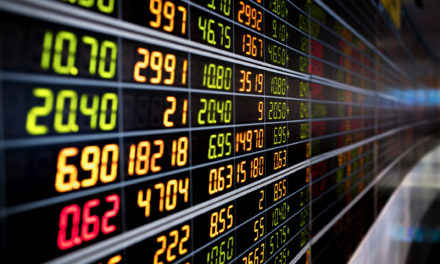
“Only buy something that you’d be perfectly happy to hold if the market shut down for 10 years.”
— Warren Buffett
A critical pearl of wisdom from Warren Buffett teaches us that with any potential stock investment we may make, as soon as our buy order is filled we will have a choice: to remain a co-owner of that company for the long haul, or to react to the inevitable short-term ups and downs that the stock market is famous for (sometimes sharp ups and downs).
The reality of this choice forces us to challenge our confidence in any given company we might invest into, and keep our eyes on the long-term time horizon. The market may go up and down the interim, but over a ten year holding period, will the investment succeed?
Back in 2012, investors may have been asking themselves that very question about Raytheon Technologies Corp (NYSE: RTX). Let’s examine what would have happened over a ten year holding period, had you invested in RTX shares back in 2012 and held on.
| Start date: | 06/27/2012 |
|
|||
| End date: | 06/24/2022 | ||||
| Start price/share: | $46.67 | ||||
| End price/share: | $94.20 | ||||
| Starting shares: | 214.27 | ||||
| Ending shares: | 272.03 | ||||
| Dividends reinvested/share: | $17.10 | ||||
| Total return: | 156.25% | ||||
| Average annual return: | 9.87% | ||||
| Starting investment: | $10,000.00 | ||||
| Ending investment: | $25,625.91 | ||||
As we can see, the ten year investment result worked out well, with an annualized rate of return of 9.87%. This would have turned a $10K investment made 10 years ago into $25,625.91 today (as of 06/24/2022). On a total return basis, that’s a result of 156.25% (something to think about: how might RTX shares perform over the next 10 years?). [These numbers were computed with the Dividend Channel DRIP Returns Calculator.]
Always an important consideration with a dividend-paying company is: should we reinvest our dividends?Over the past 10 years, Raytheon Technologies Corp has paid $17.10/share in dividends. For the above analysis, we assume that the investor reinvests dividends into new shares of stock (for the above calculations, the reinvestment is performed using closing price on ex-div date for that dividend).
Based upon the most recent annualized dividend rate of 2.2/share, we calculate that RTX has a current yield of approximately 2.34%. Another interesting datapoint we can examine is ‘yield on cost’ — in other words, we can express the current annualized dividend of 2.2 against the original $46.67/share purchase price. This works out to a yield on cost of 5.01%.
Another great investment quote to think about:
“The function of economic forecasting is to make astrology look respectable.” — John Galbraith




